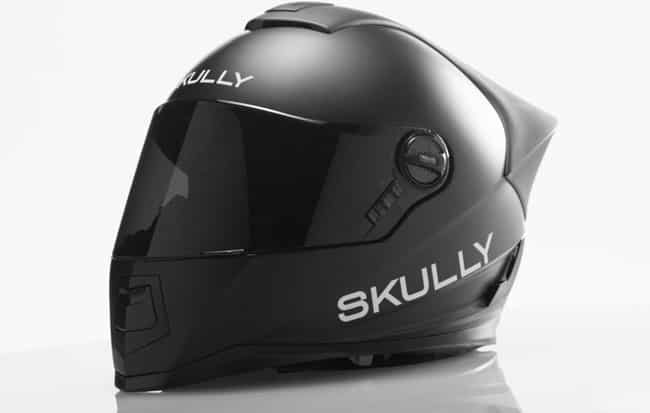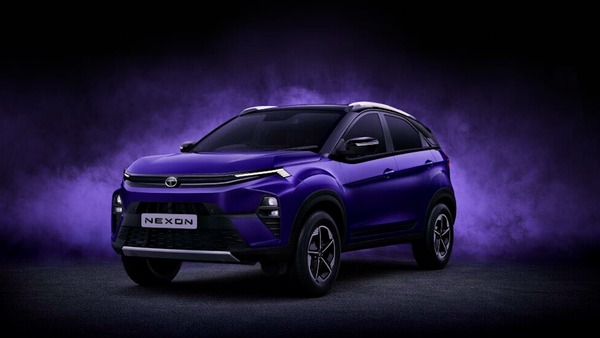Skully Augmented reality crash helmet heading to Intermot


Since it made its first public appearance in prototype form at Silicon Valley tech show The Fall Demo back in October, the Skully helmet and its creator, Marcus Weller, Ph.D -- the company's chairman and CEO -- have been guests of honor at a host of high-tech shows, snagging a host of awards in the process.
But Intermot in October will mark the first time that bikers, rather than the tech community, get to see the helmet for themselves and see if it really is as promising as it sounds.
Trending Cars
The Skully AR Helmet offers an integrated head up display and a rear-view camera so riders can see what's coming up ahead and what's approaching from behind. The system tethers wirelessly to a smartphone so the helmet can also be used for taking calls, turn-by-turn navigation and for listening to music too.
Weller is not the only person to make the connection between augmented reality and motorcycle safety. There are a number of other companies and determined individuals attempting to develop something that offers riders a head up display, better navigation and hands-free smartphone connectivity, from Nuviz to the BikeSystems BikeHUD, but the Skully has somehow managed to integrate everything in the most stylish package. And although the finished product looks impressive, getting to this point was less than easy, as Weller recalls.
'The first duct tape prototype took about six months, and is vastly different from the helmet we demonstrate to people today. The concept was an extraordinarily complex design, drawing much of its design and functionality from military aviation heads up display helmets. After extensive human factors redesign, we have taken fighter pilot helmet technology and made it palatable for consumers, simplifying many of the features and focusing on situational awareness enhancement. AR-1 is vastly simpler than the original sketch, but the core safety benefits -- heads up display, GPS navigation, and 360 degree situational awareness -- are exactly as they appeared in my dream.'
It was a dream Weller had while recovering in hospital from a motorcycling accident caused by his taking his eyes off the road in order to focus on a road sign and promptly hitting the vehicle in front that had come to an abrupt halt.
And it is a change in focus that Weller believes is the reason why solutions like the Skully AR-1 helmet are being dreamt up as a means of cutting accidents.
'Tunnel vision in transportation safety has led us to enhance all of the ways the automotive industry can make crashing safer. Only recently has the attention turned to driver aides that prevent accidents in the first place,' he says.
Weller also sees the helmet as a stepping stone towards a bigger goal of cutting accidents for all road users, not just bikers.
'We would like to see Skully systems in many different platforms, connecting cars, trucks, motorcycles, bicyclists, and pedestrians to one another to enhance the safety of everyone. We have designed our technology to adapt to many different applications. However, the key is to enable these platforms to communicate -- creating automotive safety networks today, rather than decades from now,' he explains.


Weller is not alone in driving towards a future where vehicles can communicate with and automatically avoid each other; the world's major car manufacturers are developing car 2 car communication systems that use a combination of wi-fi and 3G/4G/LTE to send each other messages and alerts be it about icy conditions or a broken down truck just around a blind bend.
However that is for the future. As for the present, the first consumer versions of the helmet, which costs $1399, won't be shipping until July 2015 but the long wait isn't deterring potential customers.
When Skully launched its Indiegogo pre-ordering campaign on August 11, it did so with a goal of raising $250,000, a target it hit in roughly 8 minutes. It soon became the fastest Indiegogo hardware campaign in history to surpass the $1 million mark.
And as of September 29 the campaign stands at $2,093,615 and over 1670 orders (from bikers from 40 countries around the world) and counting. An achievement that Weller and his brother and co-founder Mitchell, are still coming to terms with. 'It has been truly humbling when we have the time to reflect on it, because we are just happy to be doing something we are passionate about and not compromising anything for the sake of making riding a safer and more enjoyable experience.'








 1497 cc
1497 cc Multiple
Multiple














